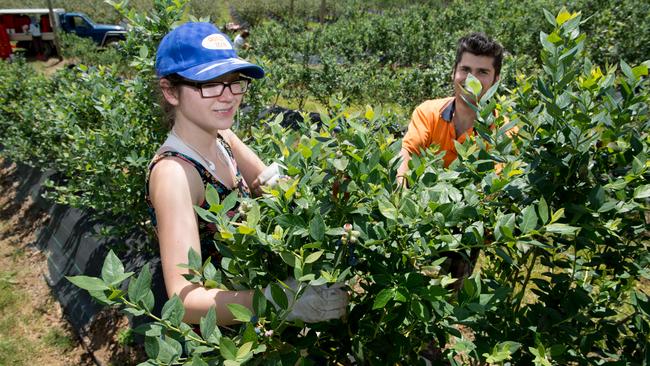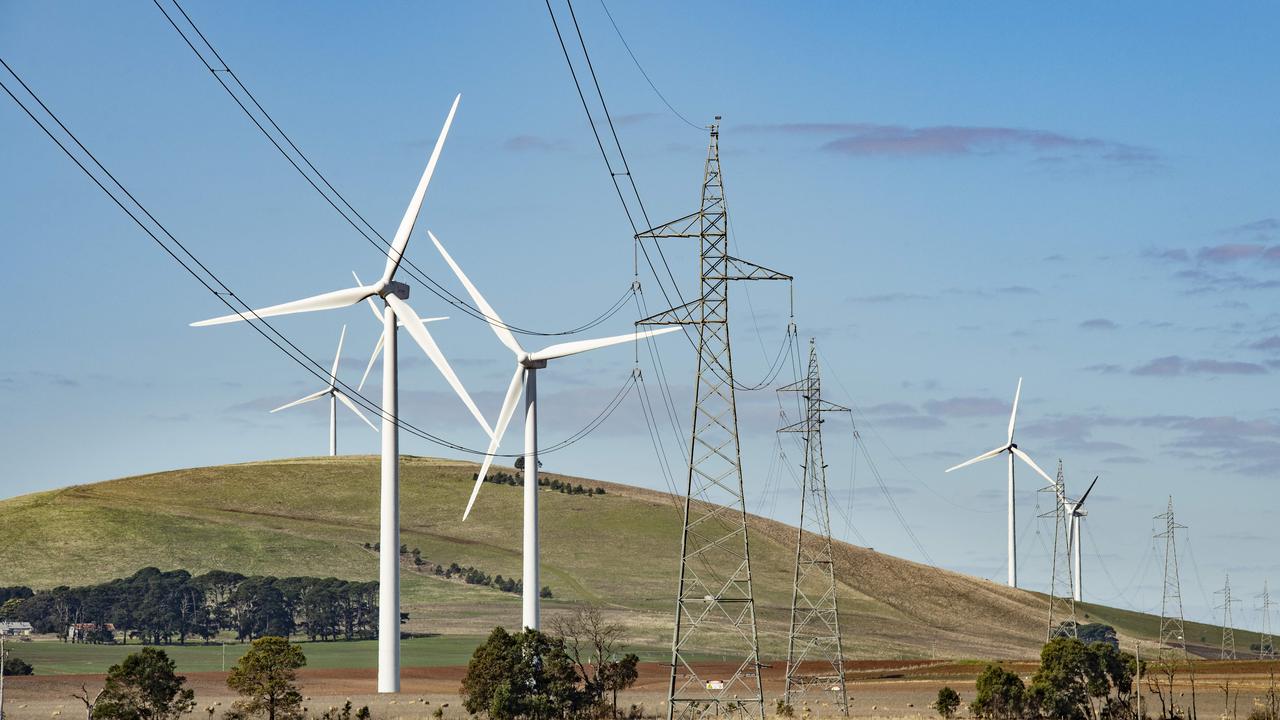Restrictions on working holiday visas have been dubbed reckless by farm and tourism operators
Tourism operators and farmers are aghast at a plan to restrict working holiday-makers to 12-month visas.

Business
Don't miss out on the headlines from Business. Followed categories will be added to My News.
A move to restrict those on a working holiday to a 12-month visa has been dubbed “reckless” by farmers and tourism leaders, who wonder whether the government learned nothing from the Covid-19 pandemic.
Since 2005, working holiday-makers have been able to do 88 days’ work in a regional area in agriculture or tourism, in order to qualify for a second year down under.
The measure has helped farmers and tourism operators access a ready workforce in peak seasons and provided backpackers with an income to fund their Australian travels.
But the migration review report currently being considered by the federal government, claimed the WHM program was a “key driver of exploitation” and the primary focus should be “cultural exchange” rather than work.
“The panel is of the view that the government could consider limiting the WHM program to one year,” said review authors Dr Martin Parkinson, Professor Joanna Howe and John Azarias.
“If WHM participants wish to work longer term in Australia they should apply for explicit employment-related pathways.”
Australian Tourism Export Council managing director Peter Shelley said restricting working holiday-makers to a year would deprive regional areas of that workforce and create more issues for the hospitality industry.
“It’s like we learned nothing from the Covid pandemic when it was glaringly apparent Australian workers did not want to do jobs like fruit-picking, housekeeping and waiting tables,” Mr Shelley said.
“We understand the government wants Australians to have access to Australian jobs but this seems enormously shortsighted especially given the seasonal nature of this work.”
He said the WHM was originally established as a cultural exchange visa but “like it or not it had become an essential part of the employment landscape which many tourism businesses relied on”.

Tourism Tropical North Queensland chief executive Mark Olsen said the organisation’s submission to the review requested that the regional extension be retained for WHM visas.
“Allowing backpackers to stay in Australia for an extra 12 months if they work 88 days in a regional area is a huge incentive for young travellers to spend time working in regional areas,” Mr Olsen said.
“Working holiday-makers are an integral part of our tourism workforce in tropical North Queensland and a valuable market sector as they spend money in the community over a long period of time.”
He said many businesses felt the absence of working holiday-makers during the Covid-19 pandemic, and experienced staff shortages that prevented them from trading seven days a week.
Farmers shared the concerns of tourism operators, given the disastrous impact of the pandemic during which tonnes of fruit were destroyed because there was no one to pick.
National Farmers Federation president Fiona Simson said backpackers were “a critical part of the workforce that put food on the table”.
“It would be incredibly reckless to remove the specified work requirement without giving farmers an alternative pathway for overseas workers,” Ms Simson said.
“We’ve already seen fee hikes and slated changes for British backpackers that will be a massive hit to our workforce. What we’re seeing is a death by a thousand cuts to our workforce options, which weren’t good to begin with.”
Mr Shelley said they would lobby the government in the hope the recommendation would not be adopted in the final migration strategy, due for release later this year.
A spokeswoman for the Department of Home Affairs said the government recognised the importance of working holiday makers to Australia’s economic recovery during and after the Covid-19 pandemic.
She said holders of WHM visas were not required to work at all during their time in Australia and about three quarters chose to not extend their visa beyond the initial 12 months.
“The government is consulting key stakeholders and aims to release the final migration strategy later in 2023,” the spokeswoman said.
“Any changes to WHM program settings will be considered in this context and will also take into account stakeholder views, immigration risks, labour market impacts and protections for vulnerable workers.”
Originally published as Restrictions on working holiday visas have been dubbed reckless by farm and tourism operators




